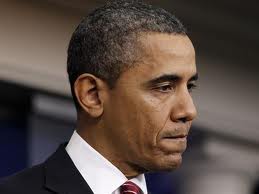I have long argued that if we are going to pay people not to work, we should be allowed to dictate what we want for that pay. For example, when I go to work, my boss is able to guide my activities. He gets to prioritize my day and my efforts. He gets to do this because we have entered into some agreement where I end up getting paid.
I see little difference when we provide Unemployment Benefits to folks who aren’t working.
In theory, the benefits are meant to provide some relief to the out of work individual during their time looking for gainful employment. Even while I disagree with the program, I can understand what we’re all trying to do. I really do.
However, if we are going to be spending all this money to help people out, I think that we should be able to watch over the program. For example, if we want people to find a job, we should ask that they come to a “job finding office”. That is a place where computers would be available, resume consultants and even job placement professionals. To be sure, if someone has an interview, they would be free to attend and “time off” would be accommodated.
Further, if there is time in the day when filling out applications and constructing resume’s has ended, there must, MUST, be good work the folks could engage in in an effort to “earn” the benefit pay. That good work could even be charity or community service; reading to kids or the elderly. Anything.
Well, it seems as if lawmakers are reading Tarheel Red:
A Georgia lawmaker wants the unemployed to put in community service hours in exchange for their government-paid jobless benefits.
John Albers, a Republican state senator, has proposed a bill that would require out-of-work Georgians to volunteer at charities at least 24 hours every week, according to MyFoxAtlanta.com. Otherwise, they wouldn’t receive unemployment benefits.
“We want to have a society that is responsible and that is accountable,” he said.
The lawmaker, who calls his bill the Dignity for the Unemployed Act, brushed off concerns that the volunteerism would cut into valuable job-searching time. And he said the law would provide “flexibility” so that if somebody needs to go to extra interviews one week, he or she could make up the volunteerism hours the following week.
Now, to be sure, I have some issues with the good congressman. I don’t think that we need the government to dictate charity, this sounds like Obama. And second, I would flat out give the candidate excused time for ANY work related activities. Got an interview? Go, good luck and win that job!
Certainly there is room for compromise here, yes?




